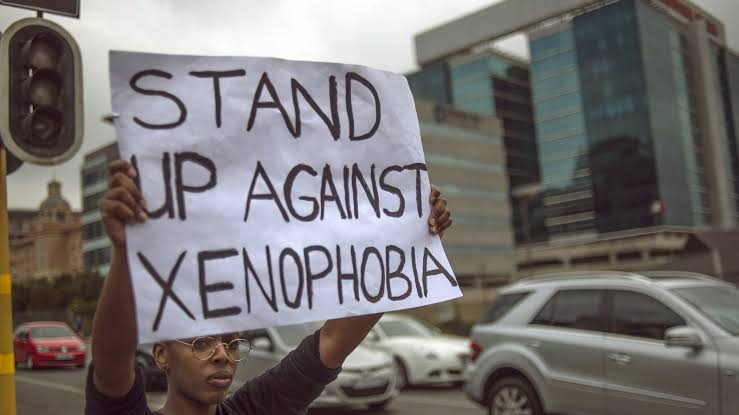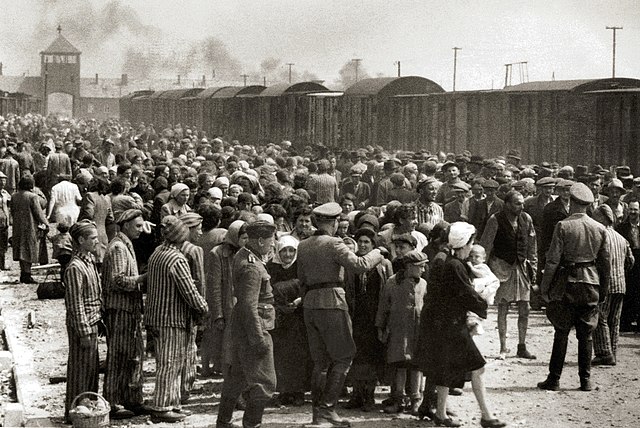
By Sefa Mnda Vivianne
More Jews died in the concentration camps in Germany than they did elsewhere in the Second World War itself, the mad German’s convictions whether born out of fear or hatred led to the systematic cleansing of over six million Jews in the tragedy that has come to be infamously known as the holocaust. While the horror that was the holocaust happened so far back in history that some have been able to put it in histories archives, the same cannot be said of the xenophobic attacks in South Africa, or the genocide in Rwanda against a single tribe that claimed close to a million lives, attacks born of ethnic discrimination which are basically a branch of the same discriminatory tree.

Racism, tribalism and xenophobic attacks have claimed millions of lives, led to outright wars and in the case of the Jews in Germany and the Tutsi in Rwanda led to the near extermination of an entire race and an entire tribe of people respectively. Racism, xenophobia and other forms of discrimination on the basis of tribal and ethnic sentiments do not receive enough credit, but they are one of the leading causes of millions of deaths, displacements and refugee crisis around the world.

Genocides and systemic cleansings sometimes take a few years in the case of Hitler and the Jews, or a few months like the case of the near extermination of the Tutsi by Hutus, which only took one hundred days. However, these acts of violence are often preceded by years if not decades of hatred, and inciteful propaganda. Potential victims of these acts are often presented as inferior, lacking in some way, of less virtue in comparison to the perpetrators of these acts of violence.
In the heat of these moments, the shock, anger and sheer indignation does not allow for deep introspection. Nonetheless, in the aftermath, one cannot help but wonder, did Hitler really believe that the Jews were inferior to the Germans; and what made them so inferior? Did the Hutu in Rwanda sincerely believe their own monomaniacal propaganda, that the Tutsi were inferior and as a result, dangerous to the nation of Rwanda? Ffor if the Tutsi were indeed inferior, what made them so dangerous; how is it possible to claim that one group is inferior to the other even when they share the same skin colour, belong to the same race and are born in the same area; or does being the minority mean inferiority; or is the answer so much simpler; is it just a case of fear?
Hitler spent a good portion of the time he used to fight one of the bloodiest wars in history trying to convince Germans, and the rest of the world that the Jews were inferior to the Germans, however more than 75 years later, there has been no proof to back that claim, in the same vein, the killer Hutu tribe in Rwanda offered no basis for their pontifications and their insistence that the minority Tutsi were somehow beneath them, dangerous and less human. But how can a weaker and inherently inferior people pose any danger to any nation. If history is anything to go by, these incitements and rubble rousing often set the stage for the ultimate cleansing or attempts to remove the victims, one cannot help but see the patterns in these acts that ultimately lead to attacks on the supposedly weaker people on the divide.
Again, Is it hatred, fear, resentment, religious, socioeconomic and political beliefs or an unhealthy combination of all that leads to these acts of violence and discrimination against minorities by majorities who go out of their way to incite others against these victims and visit violence against them? Then again, history has shown that fear can be a greater motivator than hatred, and so it is not out of place to argue that all the oppressors of tribes, races; ethnicities and religions do so not sorely out of hatred but out of fear.

In every society, the structure for resource allocation favours the dominant tribal or racial group like it did the Germans in Germany and the Hutu in Rwanda, however they are aware that any upset in the precarious balance of power or simply allowing the rival group to progress unchecked will lead to an upset that could leave them below and the hitherto minority on top, they would come to dominated instead of being the dominator. These political or economic upset may be needed for healthy competition, scientific progress and infrastructural development, but it is still a cause for alarm for illiterates and ethnic bigots. What comes next is violence, destruction and near annihilation of the supposed rival group. This is not a typical case of hatred of who ones rival is, but fear of what ones rival might become, the fear pushing the oppressor weaken the victim considerably or remove them completely so that the threat is neutered and neutralized.
This fear has led to some of the most terrifying events, turned brother against brother and crippled the very foundations of unity among different tribes in the same country and different races of the world. The systematic cleansing of the Igbo, a major tribe in Nigeria which came to be known as the progrom during the Nigeria-Biafra war fractured the country and left pieces which many are struggling to put together to this day. The massacre of the Tusti turned husband against wife, father against child, friend against dearest friend. No one imagined that the day would come when a husband would identify his wife as Tutsi to the murderers and watch as she is dragged off and killed. But humanity never fails to show a lack of humanity and has proven time and again that seeds of fear, hatred, suspicion and abuse sown over time will always result in violence against the marginalised group. Often, entire groups are wiped out, forgotten, and countries left in ruin in the aftermath of conflicts motivated by fear and hatred and envy.
Decades later, Rwanda has not recovered from the conflict that nearly tore their country apart and the ricochet effect has caused crisis in the Democratic Republic of Congo, Somalia and elsewhere in Eastern Africa with no end in sight. There is and will continue to be distrust among the Hutu and the Tutsi as there will continue to be unabated hatred between the Jews and the Germans that only education and carefully planned social inclusion can abate, with time. These conflicts expose humanity, shows us that beneath our fine clothes, kind words and pretentious tolerance, we have not and may never evolve beyond clannishness, religious attachments, ethnic sentiments, racist tendencies and other primordial sentiments. With constant tugging, these are the things that tear at the very hem of the fabric that holds societies and ultimately our world together and as time goes on it becomes tempting to think that we are becoming more evolved, more accepting, less biased. But in the face of differences, ambition, benefits, vested interests, we struggle and expose our unchecked barbarity in the most primitive way.
We must learn from these mistakes.




Comments (1)
Alaemezie Stanleysays:
May 26, 2023 at 3:27 pmThank you Ajispeaks for voicing your opinion on this ever important topic. It was worth the read… Tribalism, racism, xenophobia, colourism shouldn’t have a place in our society